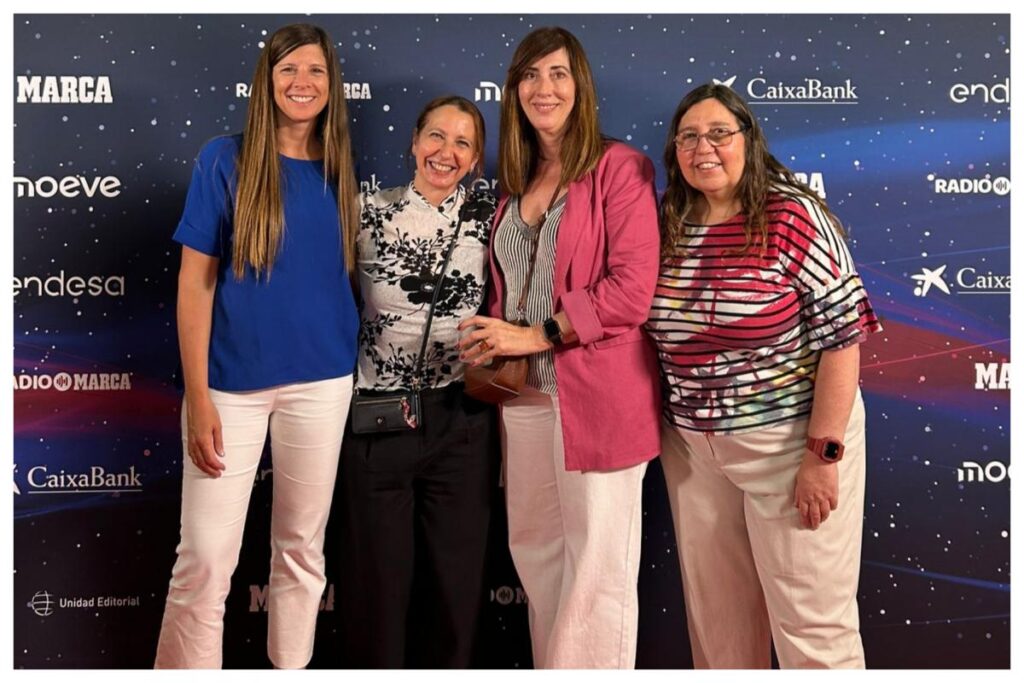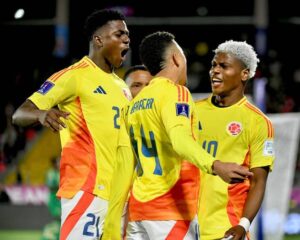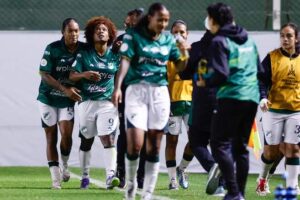
Last delivery of the season in Singular female of the series The Juntas in which we have talked to sports journalists. On this occasion we gathered the entire staff of the program to take stock. Lourdes Esparza He summed up this series as an enriching experience that has allowed him to know great companions better. In the series Game stories, Patrizia Bernardi He highlighted the most important moments of the season. Samanta Cocrónin your series A Journalist in Sneakershighlighted some of the most interesting interviews of the season and in the series of Health and womanwe conclude that there is a lot of work to be done.
According to Lourdes Esparzadirector of the series The Juntasthanks to all these interviews we have been able to know what a 21st century writing is like, because we have traveled several departments: writing, audiovisual, infographic, design, from the 80s until now. It has been quite complete. “Lourdes Esparza has come to a conclusion:” That things have not changed much, that the number of women has not varied compared to that of 20 years ago. They are still a clear minority. But the perception of women in sport has changed as demonstrated in programs such as Singular female. But there is still no women in management positions, except for some honorable exception. ”
Lourdes Esparza, director of the Las Juntaritras series
Olympic women have contributed to these changes being more effective taking sides in those management positions of the organisms that regulate sports. We talk about that Patrizia Bernardidirector of the series Game stories. This is the case of Oona Carbonell, coordinator of the Maternity and Sports Commission of the Spanish Olympic Committee. However, he complained that in the managerial field we have backed away since today only a woman presides over a federation in Spain: Elisa Aguilar President of the Spanish Basketball Federation.
Patrizia Bernardi He wanted to remember the program in which we interviewed Vanesa Chichón that last year was declared the best fencing referee in the world and third better among men and women who told us that he had the feeling that men felt less of their decisions. Or that of Begoña Luis, national coach of Paralympic cycling, both track and route, which has been in office since January 2025 and is one of the few women who have this position and directs both the women's and male team. Begoña Luis told us that when he took the step towards sports direction, there were people who doubted their management capacity, “because women are judged by roles that we have occupied in the past.”
Patrizia Bernardi, director of the Game Stories series
But he also celebrated that the Paris Games were the first on equal participants between men and women. “And there was equality in the organization of the organization or in volunteers. But I kept seeing much less women, especially in the chapter coaches.” Internationally, the IOC has risen the percentages of members and in commission positions but there is not yet 50%.
Samantha Chocrón In your series A Journalist in Sneakers He was optimistic with the sport at the popular level. “We are not alone. There are many people working to give more visibility, to give us more importance.”
Samanta Chocrón, director of the series a journalist in shoes
In this regard, the program with the Inef Professor Alberto García Bataller who is committed to “foster sports in women and in which it emphasizes specific training for women.” He also wanted to highlight some of the protagonists who have gone through his series such as nurse Lurdes Álvarez, who works through social networks to help women who cross the phase of menopause or Luismi Álvarez, the coach specialized in runners.
As for the series of Health and woman We have learned a lot from researchers such as Natalia Romero and her project that studies pelvic land dysfunctions in athletes, Leticia Méndez, and the TCA that separated her from her sports life and from Marta Pérez y Sara Peláez of the Second Party Foundation that uses sport to improve the health of people with DCA. In short, one more season working to give visibility and space to women in sports from different perspectives but always speaking in Singular female.




